
Microsoft Research Dissertation Grant Accepting Applications
The Microsoft Research Dissertation Grant aims to recognize, support, and mentor diverse doctoral students as they complete their dissertation research in computing-related fields.

The Microsoft Research Dissertation Grant aims to recognize, support, and mentor diverse doctoral students as they complete their dissertation research in computing-related fields.
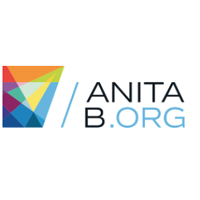
AnitaB.org celebrates and recognizes the success of women technologists with a series of awards presented at the annual Grace Hopper Celebration to honor women making significant contributions to technology.
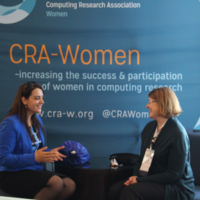
CRA-Women invites nominations for the Borg Early Career Award (BECA). The award honors the late Anita Borg, who was an early member of CRA-W and is inspired by her commitment to increasing the participation of women in computing research.
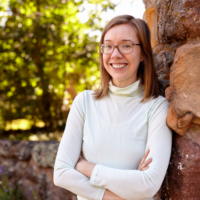
Join Dr. Jane Stout, Director of the CRA’s Center for Evaluating the Research Pipeline (CERP) for a webinar titled “Low Diversity in Tech: How Did It Happen and How Do We Fix It?”

Retention and graduation of underrepresented minorities and students with disabilities is critical to creating a strong pipeline of employees for both industry and academia. In early 2017, the Center for Minorities and People with Disabilities in IT (CMD-IT) announced the call for nominations for the first annual CMD-IT University Award for Retention of Minorities and Students with Disabilities in Computer Science. The University Award was created to recognize a U.S. academic institution that has demonstrated a commitment and shown results for the retention of students from underrepresented groups in undergraduate computer science programs over the last five years.

The CS undergraduate program at the University of Illinois is among the largest in the nation. It has grown by 250 percent over the last decade to nearly 1,800 undergraduates—and it is still growing. In the last four years, the percentage of women in our CS programs rose from 10 percent to more than 25 percent. And our freshmen class in the College of Engineering rose from 11 percent women in 2012 to about 45 percent in 2016.
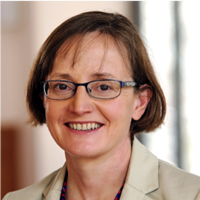
Former CRA Board Member Margaret Martonosi organized a statement on diversity at the MICRO-50 conference.
Recently, CRA board member Kim Hazelwood (Facebook) and Natalie Enright Jerger (University of Toronto) published an article in Computer Architecture Today that analyzed gender diversity in the sub-discipline. CRA’s Jane Stout provides her commentary.
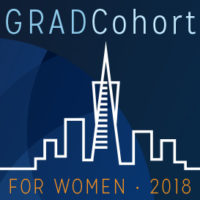
Applications are open for the upcoming CRA-Women Graduate Student Cohort for Women which will be held April 13-14, 2018 in San Francisco, CA. CRA-W Grad Cohort for Women is a two-day workshop for female students in their first, second, or third year of graduate school in computing fields.
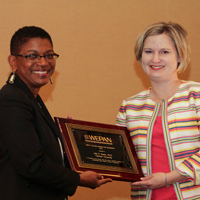
The Women in Engineering ProActive Network (WEPAN) held the 2017 Change Leader Forum in Westminster, Colorado from June 12 – 14, 2017. The Forum provided attendees an unparalleled opportunity to engage with diversity and inclusion advocates, and learn research based best-practices related to gender equity and inclusion in engineering. Nearly 200 attendees representing a variety of institutions and roles participated in the Forum, including university leaders, corporate partners, engineering faculty, K-12 teachers, and academic diversity officers.
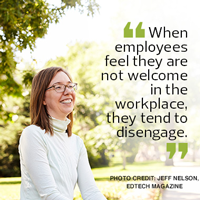
CRA’s own Jane Stout, director of the CRA Center for Evaluating the Research Pipeline (CERP), was recently featured in the article “Q&A: Researcher Shares Strategies to Increase Diversity in Tech,” in EdTech Magazine: Focus on Higher Education. Amy Burroughs, managing editor of EdTech spoke to Jane about why the lack of diversity in tech persists, how institutions benefit from diverse groups and how IT leaders can build more diverse teams. Drawing from her social science background and her current research on factors that influence women and minorities pursuing computing careers, Jane emphasized building a sense of belonging and community and encouraged IT managers to actively recruit women who can serve as role models and mentors. She also encourages IT managers to recognize that there are different types of effective leadership styles.
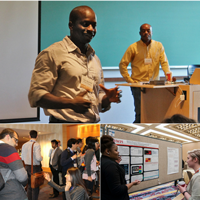
The Computing Research Association is pleased to announce a new iteration of the Graduate Cohort Workshop designed specifically for underrepresented minorities in computing and persons with disabilities. Applications are now open for the inaugural CRA URM Graduate Cohort Workshop, which will be held March 16-17, 2018 in San Diego, CA.

The 2017 ACM Richard Tapia Celebration of Diversity in Computing is being held September 20-23 in Atlanta Georgia. This year’s theme, Diversity: Simply Smarter, evokes the basic yet irrefutable concept that diversity is simply the smarter choice.

At the CRA URMD Grad Cohort Workshop, participants will spend two days interacting with senior computing researchers and professionals, who will share pertinent information on graduate school survival skills, as well as more personal information and insights about their experiences. The workshop will include a mix of formal presentations and informal discussions and social events. By attending URMD Grad Cohort participants will be able to build mentoring relationships and develop peer networks that will form the basis for ongoing activities during their graduate career and beyond.
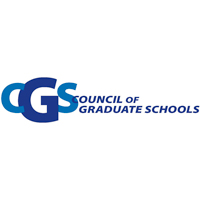
With graduate enrollment increasing for women in computer and information sciences, the entry point for the field’s educational pipeline is more robust than ever. Yet, it appears that the challenge remains to increase retention and completion of degrees. In order to expand the pipeline, our efforts must focus on both recruitment of potential talents and support throughout graduate studies that leads to desired career outcomes.
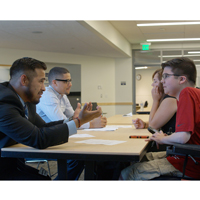
Most broadening participation efforts have focused on women and underrepresented minorities. However, for more than 10 years, AccessComputing has been funded by the National Science Foundation (NSF) to increase the successful participation of students with disabilities in academic programs and careers. AccessComputing addresses underrepresentation by providing multiple activities for students with disabilities.
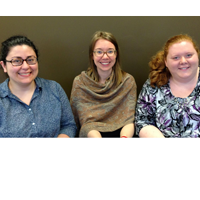
The CRA’s Center for Evaluating the Research Pipeline (CERP) turns four years old this month. During the past four years, CERP has been working steadily toward its goal of building diversity in computing through evaluation and social science research. CERP is staffed by Director Jane Stout, Research Scientist Burcin Tamer, and Research Associate Heather Wright. As seen on CERP’s About page, CERP staff are an eclectic mix of social scientists with expertise in quantitative and qualitative methods and a passion for diversity research.

As a little girl growing up in the Dominican Republic, Yerika Jimenez, currently a Ph.D. student in computing at the University of Florida, noticed she had a knack for fixing things – cell phones, TVs, radios. Everyone in her community would bring her broken items, and she would return them repaired. A few years later, when Jimenez was nine years old, her family settled in New Jersey, and her fascination with technology continued.
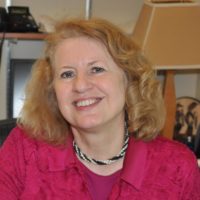
The main focus of my recent research has been computer science education and the role computer science can play in defining and advancing its own education research. Learning computational principles and learning to code is hard, and teaching these subjects is even harder. For most computer science topics, we know very little about how different learners’ best learn; how to effectively teach the material to audiences with different abilities, backgrounds, and goals; and how to reliably assess learning.
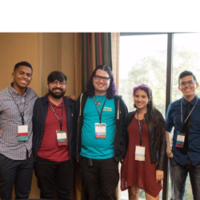
Microsoft, Inc. and Google are now offering scholarships to support students to attend the ACM Richard Tapia Celebration of Diversity in Computing Conference. Encourage your students to apply to these scholarship opportunities.
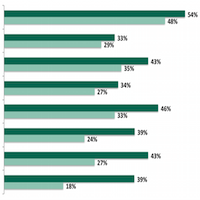
Since May 2013, the CERP team has published a graphic in each issue of Computing Research News (CRN) that analyzes the experiences of underrepresented students and professionals in computing. Each month, this newsletter will share the infographic published in CRN and news about CERP. If you are interested in receiving this newsletter, subscribe here.

Carol Frieze – A. Nico Habermann Award
Tom Kalil – Distinguished Service Award
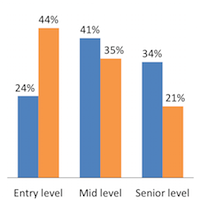
CERP recently extracted Web data to observe the career progression of women who had participated in the CRA-W’s 2008 or 2009 Career Mentoring Workshops (CMWs) compared to a sample of women who had never participated in CMWs. We obtained the comparison sample from a population of women who earned their Ph.D.s in computer science during the same time period as the participants. We collected current career information including job titles (e.g., associate professor) and job setting (e.g., academia vs. industry/labs) for both groups. We then categorized job titles as entry level (e.g., assistant professor, software engineer), mid level (e.g., associate professor, senior engineer), and senior level (e.g., professor, principal program manager), collapsed across job setting. To test for a systematic difference in job rankings between workshop participants and the comparison group, we ran a 2 (Group) x 3 (Job Title Rank) Chi-squared test and found a statistically significant difference in rankings across the two groups, χ2 (2, N = 181) = 8.46, p < 0.05. Specifically, CMW participants were less likely than non-participants to be in an entry level position, p < .05, and more likely to be in a senior level position than non-participants, p < .05.
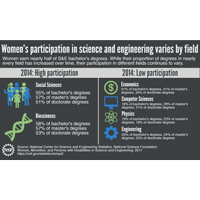
Yesterday, the National Center for Science and Engineering Statistics (NCSES) announced the release of the 2017 Women, Minorities, and Persons with Disabilities in Science and Engineering (WMPD) report, the federal government’s most comprehensive look at the participation of these three demographic groups in science and engineering education and employment.
CRA wishes to thank the computing departments who distributed CERP’s Data Buddies survey during the fall of 2016! The collective effort of these departments provides data for CERP’s research on students’ experiences and successes in computing degree programs.
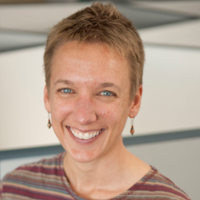
Krintz believes it is important in computing research to push technology forward by including people with diverse perspectives and ideas. To do that, she supports increasing underrepresented minority participation in computing. “I think it benefits both society and technology in general. Personally, it’s just so inspiring to see young people have new ideas, get excited, and want to go out and change the world.”

CRA-Women invites nominations for the Borg Early Career Award (BECA). he award honors the late Anita Borg, who was an early member of CRA-W and is inspired by her commitment to increasing the participation of women in computing research.
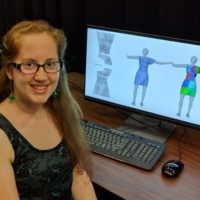
Tanya Amert, a computer science Ph.D. student at University of North Carolina, Chapel Hill, found herself drawn to computer science because she enjoyed figuring out how things work. At 13 years old, she was a big fan of the Neopets website and online community. Amert noticed some users had customized homepages, and her interest grew even more. Despite not knowing any HTML at the time, she learned how to look at the source code and figured out how to change the color of the scroll bar within the CSS. “I discovered that specific lines of HTML made that happen. And I thought that was mind boggling and awesome.”

The mission of the CRA Committee on the Status of Women in Computing Research (CRA-W) is to increase the success and participation of women in computing research and education at all levels. There are several ways you can get involved by mentoring students, submitting proposals and sharing these opportunities with your colleagues and students.
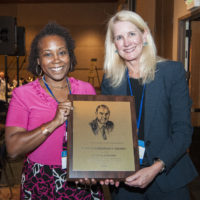
In February, Ayanna Howard from Georgia Institute of Technology received the 2016 A. Nico Habermann Award for her sustained commitment to increasing diversity in computing. Howard is currently a CRA-W board member, and at Georgia Tech, she has provided research opportunities to dozens of undergraduates – more than 75% of whom are underrepresented minorities or women, and a majority of these students have gone on to graduate school. Nominations for the 2017 A. Nico Habermann Award are due on Friday, December 9.
